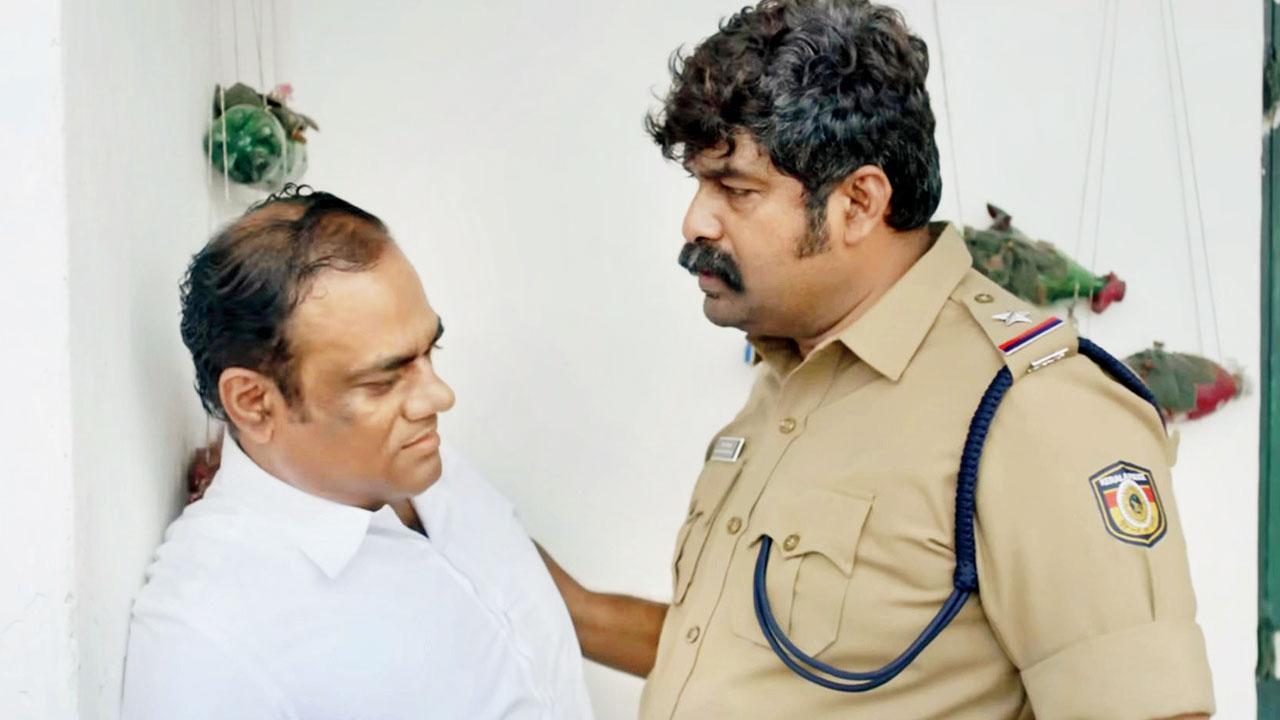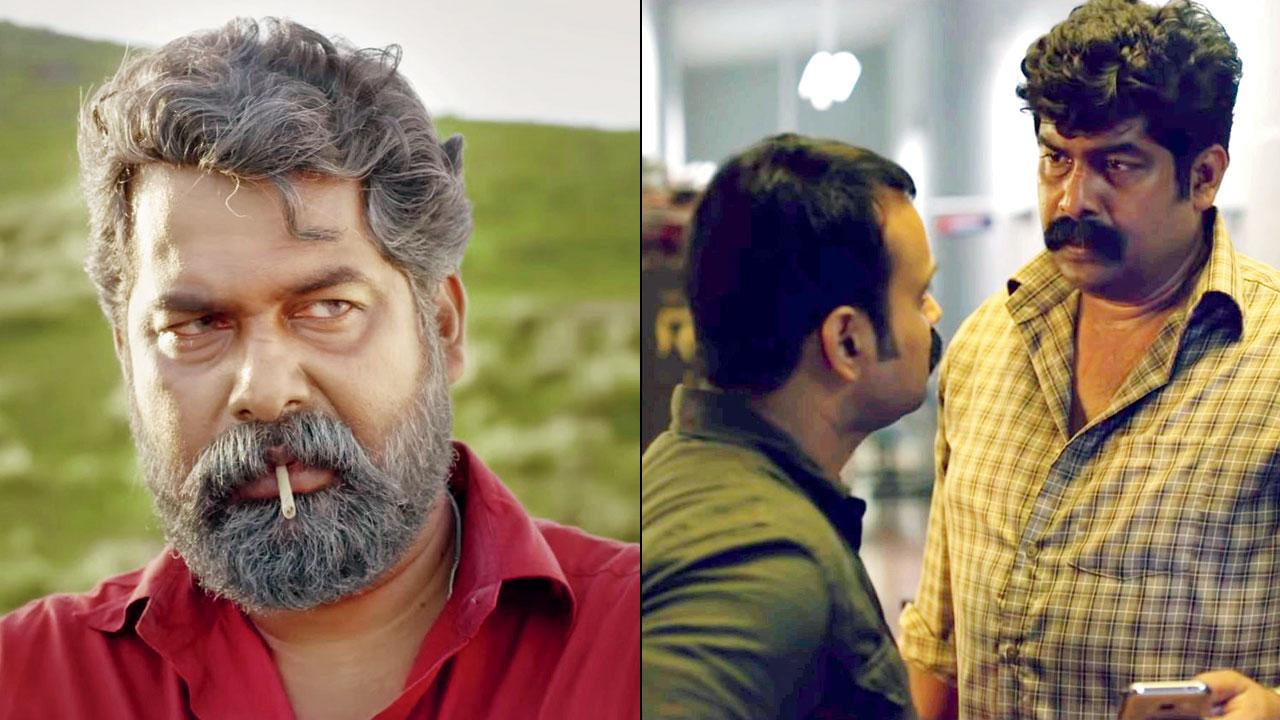No knock on Ranveer, Ranbir, etc—Joju George in Iratta was the year’s least celebrated, best Indian performance in a film

Joju George (right) in Rohit M G Krishnan’s Iratta
 What’s it about Kerala, India’s most educated state, and seemingly the most genteel, that even as you watch Christo Tomy’s documentary, Curry & Cyanide (on Netflix), about a Malayali wife, Jolly Joseph, who’s killed off six people, including an infant—as the film progresses, you’re drawn to how warm, gentle and matronly she looks, half-hoping that whatever you are witnessing is fake news, and you can offer her a hug instead!
What’s it about Kerala, India’s most educated state, and seemingly the most genteel, that even as you watch Christo Tomy’s documentary, Curry & Cyanide (on Netflix), about a Malayali wife, Jolly Joseph, who’s killed off six people, including an infant—as the film progresses, you’re drawn to how warm, gentle and matronly she looks, half-hoping that whatever you are witnessing is fake news, and you can offer her a hug instead!
ADVERTISEMENT
Curry & Cyanide is, of course, a journalistic account. But even for fiction, indisputably the most commercially successful crime drama in the history of Indian cinema (if you include its Hindi versions) are the two parts of Jeethu Joseph’s Drishyam (Vision; 2013, ’21).
With Mohanlal playing the accidental murderer in it (no, that’s not the spoiler; only the starting point)—somehow the thriller starts to feel uncannily genial.
There is no insecure grotesquery for darkly effect. At least I caught the sequel like a Sunday-watch, best served over spiced buttermilk and banana chips.
 The Malayalam actor in the thrillers Nayattu and Joseph
The Malayalam actor in the thrillers Nayattu and Joseph
If I’d emerged from a rock and hit upon Mohanlal on the screen, God knows, I wouldn’t view him instantly as the lock, stock, opening/interval-block hero. Only to burn through his filmography, over time, to figure why Malayalis consider him the GOAT.
How do you discover actors? On screen, how else—it’s much harder for those behind the camera to secure equal name/fame among Joe public. How did I belatedly discover Joju George, 46, built a bit like the present-day Mohanlal, only bigger—practically filling up the screen, with the girth to match his instinctive, natural confidence/presence?
It was in a Malayalam film, Iratta (Twin; 2023), sometime in the middle of the year, while zapping on Netflix, as usual, to click on something recommended—by a friend, not algorithm—before slipping into sleep.
Maybe because my eyes were half-open through the intro minutes of Iratta, I actually picked up the phone to google if I wasn’t seeing in twos. And that they were both the same lead actor, George, in a double role. Of course.
It’s not like either lead character has prosthetics or much make-up on, let alone with VFX at play. They even wear the same costume, i.e., the police uniform. Both twin brothers are cops, Pramod, Vinod, who couldn’t be more diametrically different from each other.
Vinod is pure vile. He’s found dead. Pramod is emotionally sensitive. Among others, he’s the prime suspect in the alleged murder. The scene of crime is the police station itself.
What follows is as much a stellar murder mystery as a flawless master-class in acting, by George! Easily the year’s least celebrated, finest performance.
There’s another aspect about discovering actors, isn’t it? You could dig into their other works, placing sufficient faith in their filmic choices.
And sometimes land on a goldmine, if it’s in a language not your own—witnessing almost a cinema movement, that you become its passionate advocate.
Such is how the current ‘Malayalam Spring’ in movies came to be. Its fine face being the star Fahadh Faasil: Super Deluxe, Kumbalangi Nights, Take Off, Trance, C U Soon, Joji, Thondimuthalum Driksakshiyum…. You look forward to their forthcoming releases. Directors can hardly be as productive.
Somehow, I didn’t remember George as the IAS officer, from Mahesh Narayanan’s splendid underworld saga, Malik (Prime Video; 2021). The film was understandably focused on Faasil alone.
But producer-actor George, in and as M Padmakumar’s Joseph (Prime Video; 2018)—I’m guessing the first time he played the cop, although retired—sucks you in totally with a dead, bearded face, and a movie that seamlessly alternates genres over hard rum.
Likewise, George as the cop on the run, in the terrific thriller, Martin Prakkat’s Nayattu (The Hunt, 2021; on Netflix) is a direct precursor to Rohit M G Krishnan’s Iratta (2023).
In the sense of delving deep into the inner workings of a police station, and its office politics. Together, you could watch Iratta as the culmination of George’s consummate cop trilogy of sorts.
In a conventional world, George would get deemed an art-house actor—something that Malayalam cinema has a strong history of. Only, his film so finely balances craft, character, and story. There are no overlong ruminations. The messaging is sharply clear. Both the politics and aesthetics are in place.
I once asked superstar Shah Rukh Khan how he defined “dark-artsy stuff”, since he mentioned he wasn’t drawn to them as an actor. He said (with a smile), “When the buzzing sound of the fly is louder than the music; dialogue delivery is extensively slow; and you can hear all the honking and traffic!”
An old way to distinguish is if you can’t predict the story-line. In most regular ‘commercial cinema’, regardless of genre, you can. What unites George’s cop trilogy, likewise the ongoing Malayalam Spring, is—you simply can’t tell, and therefore wonder throughout, what happens next (in the film)?
As with the super-hit Drishyam 2, I did not see the end of Iratta coming, from any direction. The sheer level of Iratta’s plotting supersedes anything I saw in 2023, though.
George ensures you connect with his roles and ride along. He can only be as great as the film. Was Iratta the best Indian movie I discovered this year? Hell, yeah.
Mayank Shekhar attempts to make sense of mass culture. He tweets @mayankw14
Send your feedback to mailbag@mid-day.com
The views expressed in this column are the individual’s and don’t represent those of the paper.
 Subscribe today by clicking the link and stay updated with the latest news!" Click here!
Subscribe today by clicking the link and stay updated with the latest news!" Click here!







